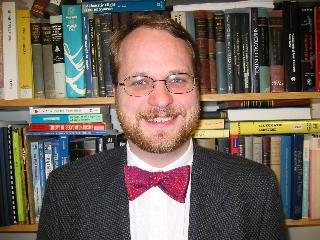Analog CMOS Circuits
Lecturer: Kent LundbergCovers the analysis and design of analog circuits in CMOS technology. The first half of the course includes coverage of fundamental material, such as MOS transistor device modeling, simple sub-circuits, and device noise theory. The design of operational amplifiers in CMOS is covered in detail, and the course concludes with a discussion of analog filter design. The second half of the course covers the design of switched-capacitor circuits, comparators, digital-to-analog and analog-to-digital converters, oscillators, and phase-lock loops.
- MOS Device Modeling
- Course overview
- A little history
- MOSFET drain current physics
- Strong inversion, weak inversion, and subthreshold
- Passive IC components
- Large-Signal and Small-Signal Models
- Linearization and notation
- Small-signal models
- Small-signal capacitances
- SOI technology
- Simple CMOS Amplifiers
- Single-transistor amplifiers
- Frequency response
- Cascode amplifiers
- Differential pair
- Analog Subcircuits
- Current mirrors
- High-swing mirrors
- MOSFET matching
- Voltage and current references
- Noise in CMOS Circuits
- Things that are not noise
- Things that are noise
- Noise models
- Circuit noise calculations
- Excess noise in SOI
- CMOS Op Amps
- Single-stage op amps
- Cascodes and folded cascodes
- Two-stage op amps
- Op-amp noise
- Op amps in SOI
- Frequency Compensation
- Op-amp transfer function
- Op-amp compensation
- Right-half-plane zero
- Nested-Miller compensation
- Fully Differential Op Amps
- CMRR and PSRR
- Advantages and disadvantages
- Fully differential topologies
- Common-mode feedback
- Rail-to-Rail Op Amps
- Rail-to-rail input stages
- Constant-gm input stages
- Rail-to-rail output stages
- Complete designs
- Comparators
- Single-ended comparators
- Differential comparators
- Offset correction
- Schmitt triggers
Custom Courses
Custom courses, tailored specifically to your needs, are available. Inquire within.
Lecturer

Kent H. Lundberg is an educator, consultant, and historian. He is president of Keeling Flight Hardware, Ltd., which provides design, research, and educational consulting services in the fields of aerospace, electronics, and control systems for companies, universities, and government organizations.Since 2008, Dr. Lundberg has been a Visiting Professor at Olin College of Engineering, where he teaches courses in controls, circuit design, and instrumentation. From 2002 to 2005 and in 2011, he was a Lecturer with the Department of Electrical Engineering and Computer Science at the Massachusetts Institute of Technology. His research and teaching interests include the application of classical control theory to problems in analog circuit design, and the development of educational toys (lecture demos, take-home laboratory kits, and tutorial computer applications) for feedback systems and control engineering.
Dr. Lundberg was the Associate Editor for History of IEEE Control Systems Magazine from 2004 to 2011. He attended M.I.T. earning a Bachelor's degree in physics in 1992, and a Ph.D. in electrical engineering in 2002. He owns 43 Tektronix oscilloscopes, and he obsessive-compulsively collects analog synthesizers, technology artifacts, and classic textbooks on radar, nuclear energy, analog computing, and control.
Last updated at 10:11 on Thursday, 10 Jan 2013. by Kent Lundberg